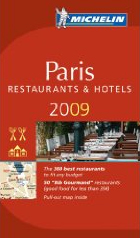Eating Opposed to Dining and Please Repeat Yourself
- SUBSCRIBE
- ALREADY SUBSCRIBED?
BECOME A BONJOUR PARIS MEMBER
Gain full access to our collection of over 5,000 articles and bring the City of Light into your life. Just 60 USD per year.
Find out why you should become a member here.
Sign in
Fill in your credentials below.
 The adage that you can’t get a bad meal in France is a fallacy. Paris is filled with restaurants, bistros and cafes where tourists gravitate. Chances are the management will never see the majority of these diners again. "What… me worry?", may be their attitude.
The adage that you can’t get a bad meal in France is a fallacy. Paris is filled with restaurants, bistros and cafes where tourists gravitate. Chances are the management will never see the majority of these diners again. "What… me worry?", may be their attitude.
How can you make your dining experiences more meaningful? By all means, read Bonjour Paris’s food critics’ reviews. But there are some other ways when you don’t have access to the Internet or guidebooks that may give a clue as to when a restaurant is out of date. Steer clear of establishments where the carte (that’s required to be posted so it can be seen from the establishment’s exterior) is written in multiple languages. It’s a sure tip-off that you should be on the lookout for the next group of haggard-looking people disembarking a tour bus. After all, everyone has the right to eat especially after spending the morning in the Louvre and seeing half of the City of Light.
Many restaurants do have English language menus. This is partially for the guests but more for the waiters. They may not understand your English, much less your accent. The selections sound so much less elegant in English than in French. Most Francophiles will tell you the translations leave much to be desired. It’s akin to being in a very trendy restaurant in New York City or Los Angeles where, even after you’ve read the menu, the waiter, who feels the need to introduce himself, has to spend 30 minutes explaining what to expect. "Cunningly arranged" are frequently buzzwords for nouvelle cuisine, where it’s more than likely you’ll probably leave the restaurant hungry and awaken with the 3 a.m. munchies.

I’m currently in Washington, DC. Considered a good restaurant city, I’m at a total loss when a friend asked me to choose where I’d like to eat before I board a Paris-bound flight tomorrow. It’s not that I don’t like going out for a nice meal, being pampered and avoiding dirty dishes plus pots and pans. But after seeing numerous $60 tabs for soup, two burgers and two glasses of wine, my enthusiasm diminishes about eating out for the sake of eating out. Remember, in the US contrasted with the EU, you have to factor in the tax and the tip.
There’s a new group of "in" restaurants in Penn Quarter, a recently renovated area between the White House and the Capitol. Some of the city’s hottest eateries are found there. The food is often good and sometimes more than that. But the headache that’s derived from the din can be enough to make you question your sanity. Perhaps it’s because the under 40-year-old crowd has been subjected to blow-your-ears-out music since they were teens.
Some of the most popular restaurants in DC are the steak houses where some of the city’s power brokers and big-buck expense account types meet and greet and impress clients. These restaurants (frequently chains such as The Palm, Morton’s and Smith & Wollensky’s) serve such humongous portions that you need to be a gourmand or feel guilty about those who are starving throughout the world.
One of the neighborhood haunts I frequent offers $5.00 burgers if you sit at its bar and are finished before 7 p.m. when the crowds descend. Each Monday night, wines from Chef Geoff’s more than adequate list are priced at 50% of the regular cost. That’s a bargain and attracts neighborhood folks including a lot of the area’s students. But why are there two televisions?
Why does everyone talk at the tops of their lungs so you can’t hear the people with whom you’re breaking bread? Each time a person raises his or her voice, the sound level escalates. Why isn’t there carpeting, walls with materials that baffle sound, acoustical ceilings, etc.? There are sports’ bars everywhere; during playoffs, noise, and even shouts and screams, are anticipated. But, why are people discouraged from thinking when it’s a normal day. Is it a commentary that the art of conversation is on the wane?
Restaurants in Paris and many other EU cities encourage people to linger over their meals and don’t count on turning tables 2-3 times during a dinner service. Studies have proven that the less comfortable the seating and the higher the decibel level is, the faster patrons vacate a table. In Europe, getting the bill is often a lengthy process. In the U.S., signal your waitperson and you’ll be out the door within minutes.
One way to be able to have a conversation coupled with a light meal is to go to a hotel bar, which has sofas and additional seating with sufficient space between areas. If you’re noise sensitive, steer clear of people sporting nametags (undoubtedly, they are part of a convention) and/or the pianist who may be wonderful if and when you’re in the mood. However, when you’re not …
If you have ideas you have as to how to avoid an Excedrin headache while simultaneously eating a pleasant meal out, don’t hesitate to send them.
© Paris New Media, LLC




